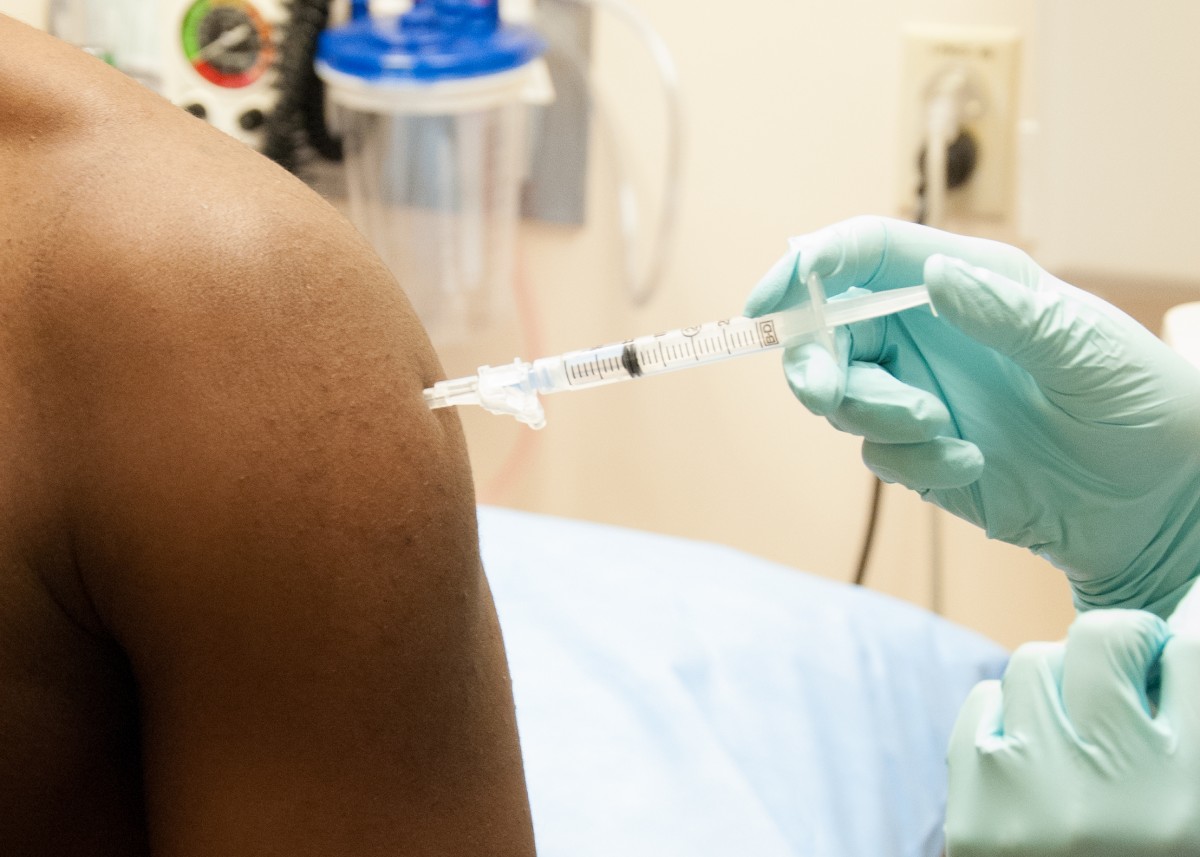Three years ago, Profectus Biosciences was successful in showing that its Ebola vaccine could work on monkeys. But the company needed more resources to begin testing it on humans.
Between federal agencies like the Department of Defense, the National Institutes of Health and the Health and Human Services Department’s Biomedical Advanced Research and Development Authority (BARDA), no one had money to provide funding to begin clinical trials on humans.
“For three years the answer that we got back was, ‘We recognize that you have a wonderful vaccine,’” said John Eldridge, the company’s chief scientific officer. “’We have Ebola and Marburg on the threat list, but those viruses cause isolated, sporadic outbreaks in West Africa … We don’t have them high on the list.’”
At the time, Ebola was seen primarily as a bioterrorism threat. And even in that category, the disease was not among the highest perceived threats.
“We were treading water for several years, looking for a partner to help us move forward,” Eldridge said.
Not anymore.
Now, as the death toll from the unprecedented Ebola outbreak in West Africa tops 5,000 and continues to spread into new countries like Mali, there’s an urgent need for an Ebola vaccine, which has never been released for human use.
Profectus has received about $37.5 million in grants for a pair of vaccines. All three agencies — the DoD, BARDA and NIH — provided funding.
“All three of them have stepped forward and we sort of have a consortium which is allowing us to move forward through manufacturing, through clinical evaluation and hopefully make things available,” Eldridge said.
The grants will allow Profectus to begin human trials on two vaccines, both of which are capable of combating the Zaire strain of the Ebola virus that is currently spreading in West Africa.
Just as with vaccine trial work that’s being partially run by two University of Maryland researchers on the ground in Mali (we spoke with Dr. Myron M. Levine while he was there in September), work to make Profectus’ vaccine available is being fast-tracked so that it can be ready as soon as clinically possible.
Right now, only enough vaccines are being manufactured to be used for the first round of human trials. The company is now scaling up operations to run the trials in a more rapid manner, and may look to add staff.
“We have made the internal decision that we will do things as rapidly as possible, and we will modify our normal course of business in conjunction with the Food and Drug Administration,” Eldridge said. “We will advance into a Phase 1 trial — which has been funded — as rapidly as possible.”
###
The East Baltimore-based company hopes to begin trials of a vaccine that is specifically designed to treat Ebola Zaire in June 2015, with the trial phase of a second, wider-reaching vaccine likely beginning in September 2015. If the Phase 1 trials are successful, the vaccines could then be used for “compassionate use,” meaning they would not have to go through the typical three-phase trial process. The U.S. Food and Drug Administration would have the final say.
When Profectus began developing the vaccines 15 years ago, Eldridge said the company didn’t have Ebola in mind.
That’s evident in the second vaccine that received funding for human trials. Called a trivalent vaccine, it can treat all strains of Ebola, as well as Marburg virus. Together, all of the strains of Ebola and Marburg are known as filoviruses.
Beyond responding to emergency threats, Eldridge said Profectus’ work is aimed at preventing future outbreaks. Now, the federal agencies are thinking in the same way.
“We need to fund the manufacturing of a vaccine that can protect against all of these agents,” Eldridge said of the current thinking. “That would be the logical vaccine to be stockpiled for military use as well as civilian use.”
The company is also using the platform for both the vaccines, known as VesiculoVax, to develop treatments against equine encephalitis, lassa virus and chikungunya virus, which recently had a case reported in Florida. Profectus has also completed Phase 1 trials of a vaccine against HIV.
“This outbreak has illustrated to everyone that these viruses … do have the potential to cause very large outbreaks with the potential for worldwide spread,” Eldridge said.
Join our growing Slack community
Join 5,000 tech professionals and entrepreneurs in our community Slack today!
Donate to the Journalism Fund
Your support powers our independent journalism. Unlike most business-media outlets, we don’t have a paywall. Instead, we count on your personal and organizational contributions.

Comcast introduces ultra-low lag Xfinity internet that boosts experiences with Meta, NVIDIA and Valve

Maryland firms score $5M to manufacture everything from soup to nanofiber

This Week in Jobs: Add these 26 tech career opportunities to your vision board


